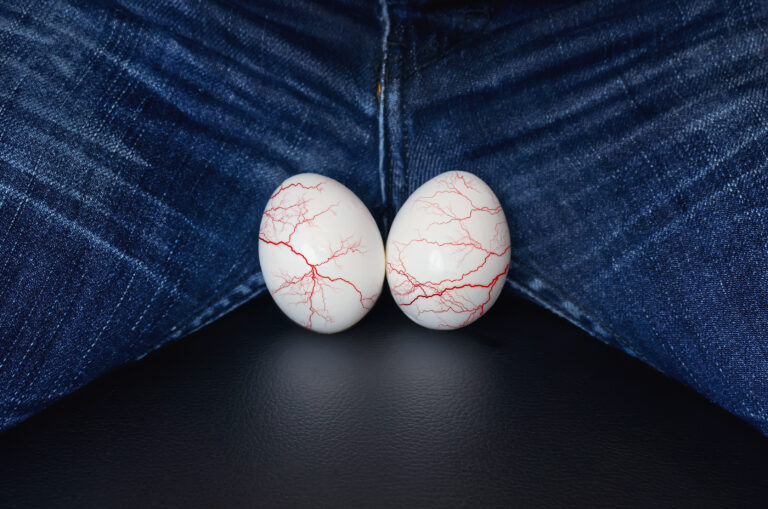Sperm is the male sex cell that makes fertilization possible, and each man makes approximately 100 million sperm cells each day. In contrast, women are born with all the sex cells, or eggs, they will ever have; they cannot create new ones.
How conception happens
When men ejaculate during sexual climax, sperm from the testicles mixes with seminal fluid to form semen. If a man ejaculates during sexual intercourse with a woman who is within her fertile window of her menstrual cycle, all it takes is for a single sperm to make its way through the female reproductive tract to fertilize an egg for conception to occur.
The most important thing to understand about male fertility is that men are fertile all the time, and for most of their adult life. In contrast, women are only fertile for a brief window for each month, and typically only from their late teens until their late thirties.
How to improve your fertility
Still, men can (and do) experience infertility. In fact, male factor infertility is becoming increasingly common as sperm counts across the globe steadily decline. But sperm count isn’t the only important factor; sperm morphology (shape) and motility (movement) are also key factors in male fertility.
Healthy habits and lifestyle can have a positive impact on sperm count. From start to finish, a sperm cell takes about 64 days to mature, which means it’s a good idea to adopt better health and lifestyle habits months before you and your partner are thinking about getting pregnant. In fact, your chances of conceiving are best when both partners adopt healthy habits to improve your fertility, such as eating a healthy diet, exercising moderately, limiting alcohol and sugar consumption, stopping smoking, and so on. This is because sperm require high quality, fertile cervical mucus in a woman’s body in order to be able to survive in the female reproductive tract (an environment which is otherwise too acidic for sperm to survive for long).
Respectful infertility evaluation
If you and your partner are struggling to get pregnant, it is worth it for you both to have an infertility evaluation. Know that there are ways to collect a semen sample beyond masturbating in a clinic bathroom, which may result in a more accurate sample as well.
For more on men’s fertility, see the articles below.
-

Varicoceles: What are they, and how do they affect male fertility?
By Kristen Curran • May 5, 2023Staying up late researching varicoceles? Your worrying may turn out to be in “vein” (if this pun doesn’t… -

What’s happening in male vs. female brains during sex?
By Joe Malone • February 17, 2023In the process of writing my PhD dissertation about how young women’s overall health and wellness impact the… -

Natural treatment options for male infertility
By Clare Sharp • February 10, 2023In a separate article, I covered the debate on whether worldwide decreasing sperm counts are cause for concern… -

Male infertility: are low sperm counts a big deal?
By Clare Sharp • February 10, 2023Sperm counts in human males have been dropping worldwide for years, but how big a problem is that?… -

Male Sex Hormones Are a Big Deal, Too
By Grace Emily Stark • November 22, 2019This is Your Brain on Birth Control by Dr. Sara E. Hill takes a remarkably deep dive into… -

What’s the Status on Male Birth Control?
By Gabriella Patti • August 31, 2019For the past several years, many of us have seen headlines referencing the development of birth control drugs…








